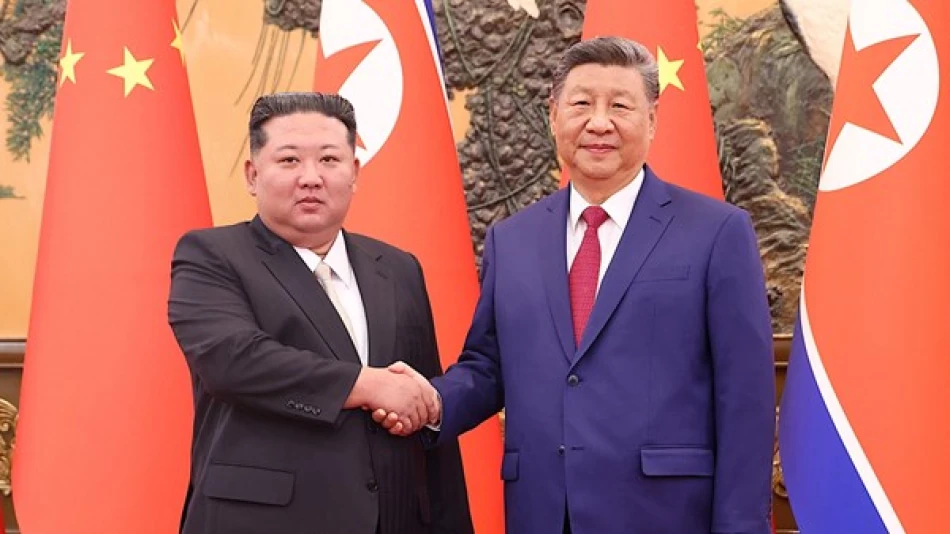
China's President Hosts Talks with North Korean Leader Amid Global Tensions
Xi and Kim Hold Strategic Talks as North Korea Deepens Ties with China-Russia Axis
Chinese President Xi Jinping and North Korean leader Kim Jong Un conducted high-level discussions at Beijing's Great Hall of the People, marking another significant diplomatic engagement as Pyongyang strengthens its alignment with authoritarian powers amid escalating global tensions. The talks followed Kim's rare foreign visit to attend a massive military parade commemorating Japan's World War II surrender alongside Xi and Russian President Vladimir Putin.
A Rare Diplomatic Venture for the Reclusive Leader
Kim Jong Un's arrival in Beijing on Tuesday represents one of his infrequent international trips, underscoring the strategic importance North Korea places on its relationship with China. The timing coincides with heightened geopolitical tensions and suggests coordinated messaging between the three authoritarian leaders.
While Chinese state media has yet to release detailed information about the specific topics discussed during the Xi-Kim meeting, the symbolism of the encounter speaks volumes about shifting global alliances.
Military Display Sends Clear Message
Wednesday's massive military parade commemorating the 80th anniversary of Japan's World War II surrender served as more than historical remembrance. The presence of all three leaders—Xi, Kim, and Putin—at the same event represents a powerful visual statement of solidarity among nations increasingly isolated from Western democratic alliances.
This trilateral convergence occurs as China faces mounting pressure over Taiwan, Russia continues its war in Ukraine, and North Korea accelerates its nuclear weapons program despite international sanctions.
Strategic Implications for Regional Security
Economic Lifeline for Pyongyang
China remains North Korea's primary economic lifeline, accounting for roughly 90% of its trade despite international sanctions. These high-level diplomatic exchanges likely involve discussions about continued economic cooperation and potential sanctions evasion mechanisms.
Military Cooperation Concerns
Intelligence reports suggest increasing military cooperation between North Korea and Russia, with Pyongyang allegedly supplying ammunition for Moscow's Ukraine campaign. China's role in facilitating or tolerating such arrangements remains a critical concern for Western policymakers.
Historical Context and Precedent
The China-North Korea relationship has weathered significant turbulence over decades, from the Korean War alliance to periods of cooling relations when Beijing supported UN sanctions against Pyongyang's nuclear program. However, recent years have seen a strategic realignment as both nations face increased pressure from the United States and its allies.
This meeting echoes the Cold War era when ideological blocs maintained rigid boundaries, but today's dynamics involve more complex economic interdependencies and technological competition.
Market and Global Response
Financial markets typically respond negatively to increased cooperation among these three nations, viewing it as destabilizing for regional security. Defense contractors and cybersecurity firms often see increased investor interest during such diplomatic developments, while Asian markets may experience volatility depending on the specific outcomes of these discussions.
The lack of detailed information from Chinese state media suggests sensitive topics were likely discussed, potentially including military technology transfers, sanctions circumvention, or coordination on future geopolitical moves. Such opacity typically signals that substantive rather than ceremonial discussions took place.
Most Viewed News

 Layla Al Mansoori
Layla Al Mansoori






